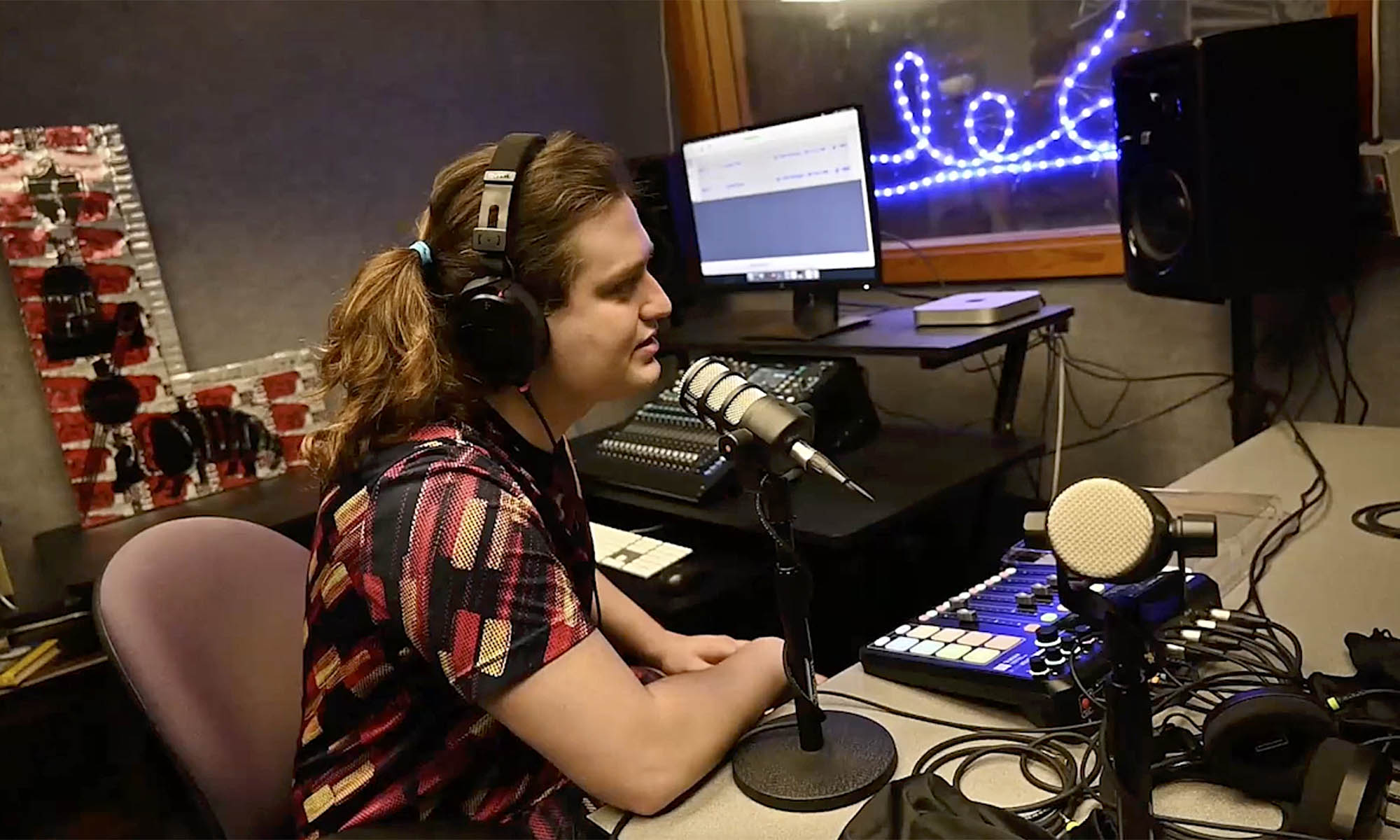By Gilliana Hope
Matthew DeChant’s shirt said it best: “Polka’s Not Dead!” This is what I theorize the lead singer of Fish Fry Fist Fight (FFFF) hoped to prove on March 31st. If you passed through Warch Campus Center last Friday, you likely heard the echos of frenzied melodic rumblings through the building from the second floor. It was a conglomerate of foot-stomping, hand-clapping, and dizzying dancing in the Esch Hurvis room; this was precisely the goal of utilizing the space, DeChant explained, “people being able to dance was very important to us.” Typically a space where dance courses are held, the room served as a home for free movement of the body in wacky and wonderful ways. The vibrations from the ground as concert-goers felt the music only heightened the connective community experience. Whether one was a trained dancer or could not bust a move to save their life, I’m certain that anyone would feel comfortable enough to dance to the fast-paced beats played, a mix of rock, punk, and— of course— polka.
The band’s formation tied directly to the Tiny College Concert (TCC) series, an ongoing campus concert event programming founded by Avery Riel. DeChant always hoped to make FFFF a reality but found conflicts and outside factors— such as the pandemic— hindered movement. When he saw TCC starting up at the beginning of this year, it was “the perfect time for this weird crazy punk-rock-polka idea to finally happen.” Thus, FFFF made their debut, consisting of lead singer and accordionist Matthew DeChant, drummer Ryan Saladin, tubaist Lawrence Schreiner, trumpeter Alex Poplawski, and the dual-guitarists Gideon Lucard and Silas O’Connell. Their genre choice is unique in the best of ways, with a personal passion for it from DeChant, himself, “polka is very near and dear to me, I have fond memories of listening to polka bands and stuff like that.” A fan of punk-rock too, bridging the gap between Polka and punk was a natural combination, in his eyes. “It’s so focused on community and bringing people together,” he noted, appreciating how the genre leans into its existence outside of commercial-specific spheres.
Throughout the concert, several dance lines broke out among the audience members. When asked what inspired this, concert-goer Lauren Dahl described the night’s aesthetic as one that made her feel “like I was a celtic fairy just at a summer solstice celebration.” In agreement with Lauren was her friend Miranda Lawson, who said the festivities “reminded me of fun times with friends.” Reflecting on the event, DeChant recalled having conversations with those who came up to him after the performance and expressed the nostalgic impact of the night, which brought back childhood memories for local Lawrentians. “It’s just super cool how much polka music is still a connective memory among a lot of people from Wisconsin… to draw back on those old memories people don’t even realize they have,” DeChant said. The band’s joyously chaotic celebration was a perfect way to ring in the end of the first week of this new term.
(Some quotes have been edited for clarity and conciseness)
